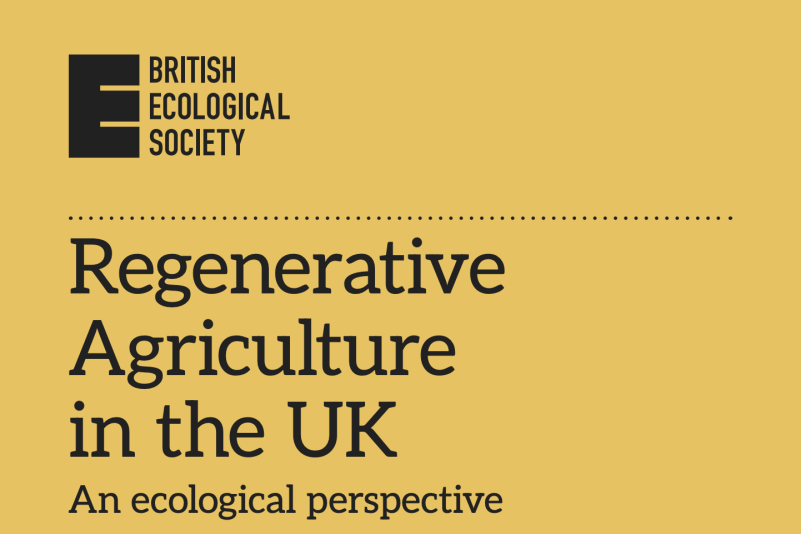Regenerative Agriculture in the UK: an ecological perspective

The British Ecological Society have published a summary report entitled ‘Regenerative Agriculture in the UK: An ecological perspective’. This summary report – based on a much longer academic report from a team of over 40 ecologists with contributions from farmers across the four nations – assesses the regenerative approach to soil health, biodiversity and minimising environmental damage.
The 2023 State of Nature report confirmed farming as a leading cause of habitat loss and species decline in the UK, on a par only with climate change. That same year, an inquiry by the House of Commons Environmental, Food and Rural Affairs Committee found that current approaches are putting the future of our soils at serious risk, making change ‘critically important’.
Scalability, affordability and productivity are key considerations in any vision for a more ecologically sound food system. For increasing numbers of advocates, regenerative farming could be the answer; a farmer-led movement with a focus on protecting the integrity of the soil, producing food that is profitable, and increasing farmland wildlife.
Yet as the global need for sustainable food production intensifies, regenerative agriculture as a concept has become politically and economically loaded, with accusations of insufficient scientific evidence and concerns around a lack of a formal definition. Similarly, multinational brands presenting regenerative agriculture as part of their corporate sustainability programs have come under increasing scrutiny from farmers and NGOs.
Regenerative agriculture has succeeded in harnessing farmers’ existing relationship with the land and looks to forge a renewed sense of stewardship that envisions a future of landscape regeneration, rather than being satisfied by the mediation of harm.
Discussing the report, Hazel Norman, Chief Executive at the British Ecological Society, said:
"Regenerative agriculture is increasingly championed as a way to achieve environmental objectives whilst maintaining profitable food production. This report explores the practices and principles associated with regenerative agriculture and assesses the evidence regarding their efficacy. It finds that core principles of regenerative agriculture, such as minimising bare soil and diversifying farmed landscapes, show clear environmental benefits. However, it also highlights areas where evidence is less certain and further research is required, like minimising tillage or maintaining future yields. The report was put together by over 30 authors and contributors from diverse disciplinary backgrounds. We are particularly proud of how it draws on both ecological and agronomic expertise. As a result, many of the report's recommendations focus on how ecologists, policymakers and farmers can collaborate in future to promote a form of regenerative agriculture that is both evidence-based and commercially viable."Hazel Norman, Chief Executive at the British Ecological Society
Subscribe to our Newsletter
A quarterly update of all LUNZ Hub activities, events and news stories.
